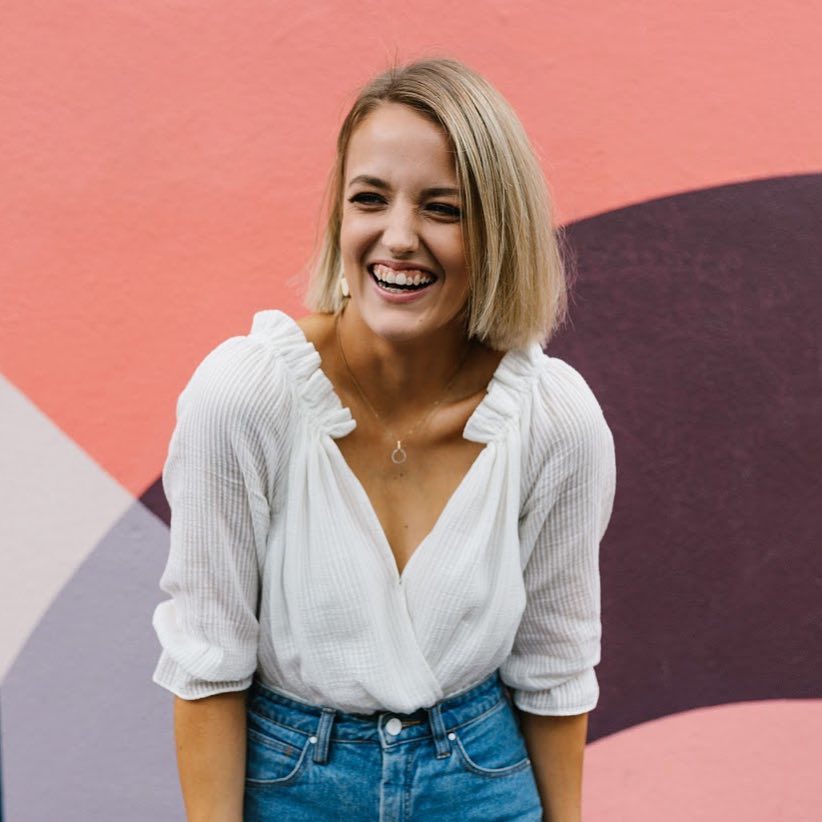Speak to someone
If you have feelings of anxiety or depression, see your GP or contact Beyond Blue.
I was on a tram heading to work when it dawned on me.
Despite being on the cusp of winter, I was sweaty. Fidgety. Frazzled.
For whatever reason, my brain convinced itself that I was in danger and needed to swap trams immediately. I felt like something – or someone – threatening was on my current tram. So I got off and waited 15 minutes for the next one to arrive.
That irrational decision made me late for work. Which made me realise something just wasn’t… right.
The next day on my way to work, despite knowing how silly it was, I made the same decision – I swapped trams again.
That’s when I decided to call my mum and tell her how scared I was; how simply travelling into the office made me seize up with panic.
“Michelle,” she said softly, “this… anxiety… is beginning to control your life.”
It was the first time I realised the A-word perfectly explained how I was feeling.
The months leading up to that phone call with mum had felt darker than usual. My days were increasingly defined by a feeling of impending doom – that my family or friends would have a car crash, that I had some mysterious illness, that my boyfriend would be coward punched by a stranger on the street.
Fear about everything, I guess.
That’s the thing about anxiety – you often can’t decipher what you’re actually feeling anxious about. It’s hard to explain to the people around you how you’re feeling because you often don’t have words for it – saying it aloud feels almost moronic. You feel an intense urge to escape, flee, run – without any coherent idea of what you’re running from.

“I’m going to send you a psychologist’s details,” my mum told me. “I’ll ask my girlfriend who she sees.”
At first, asking my GP for a mental health plan and a referral for a psychologist felt like failure. Like I was too weak to deal with the usual stresses of life that other people just deal with.
It took all of five minutes with my psychologist Claire to realise that it was exactly what I needed.
That was 18 months ago. I still see Claire regularly today.
Despite what movies and TV shows might tell you, I don’t lie down in a chaise lounge and close my eyes at my psychologist appointments. I sit in a comfy chair, facing my psychologist, and we chat about my life. My career, health, relationship, friends, family – all of the stuff that delights and challenges and surprises me.
Claire is like an unbiased, rational mentor. She helps me see through my anxiety to what is reality. To what is rational and realistic.
My psychologist has taught me coping strategies to deal with stress, the importance of mindfulness, and how to make exercise a priority. She’s equipped me with the tools to live a happier, calmer life, completely free of irrational tram-swapping. (Thank god.)
While my anxiety was once a force that dictated my existence, it’s now like a quiet breeze that I feel one or two days a month. I know it’s there, in its own unique way, but I also know I have an arsenal of tools to navigate it. To squash it. To show it who’s boss.
Seeing a psychologist isn’t always cheap, but being on a mental health plan means up to 10 sessions are subsidised by Medicare. I love that many universities have on-site psychologists that young people can access for free and that Australian schools have counsellors on hand to assist their students.
I often wish people saw my psychologist – a mind specialist – in the same way they see my respiratory physician – a lung specialist. Slowly, surely, I think we’re getting to a place where people can start talking more openly about their mental illness without niggling stigma and shame. Until then, I’ll do everything in my power to show other young people that seeing a psychologist when you’re struggling mentally is just as important as seeing a doctor when you have persistent headaches, or a physio when you have back pain.
And if I could travel back 18 months and tell that scared, anxious, frightened Michelle anything, I would tell her this:
“You are not being weak. You are not being stupid. You just need some help right now – and help is right around the corner.”

RUOK? Day is one of my favourite days of the year. This incredible organisation helps raise awareness of the critical importance of checking in on our friends, colleagues and even strangers in the street. It also acts as a reminder that we need to check in on ourselves and the people around us. It’s a […]

You may have heard the saying that ‘sitting is the new smoking’. It is so important for us to move our bodies regularly for all of the important health benefits that come with this. Prolonged static postures like sitting, have been proven to increase our risk of diabetes, heart disease, even digestive issues and other […]

One question we’ve noticed that has been asked again and again is, ‘how do I get more sleep?’ So we’re inspired to dedicate this week’s blog post to this important question…
